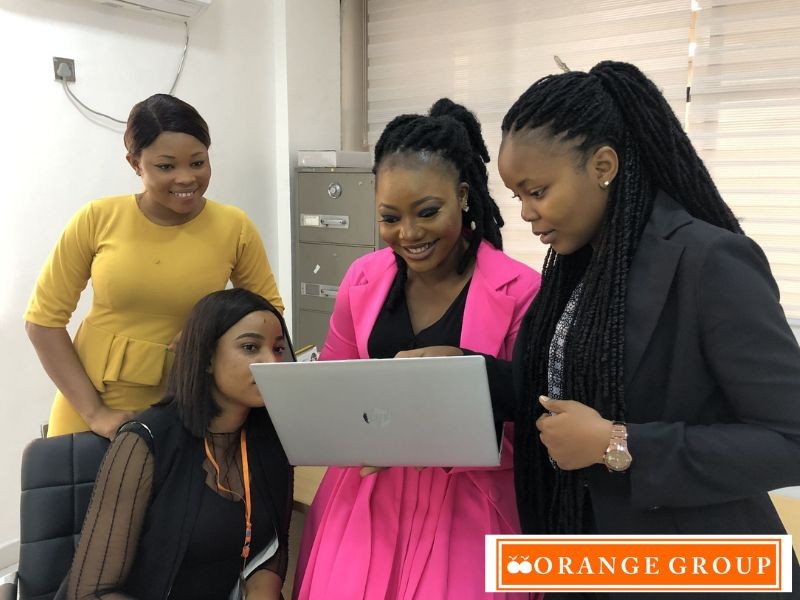
Mastering Communication in the Workplace: Tips for Building Stronger Relationships
Orange Group
Orange Group is a diversified Fast Moving Consumer Goods (FMCG) group in West Africa.
Communication is the foundation of all relationships, and it is essential for building trust, respect, and collaboration among colleagues. In this article, we will share tips and strategies for improving communication in the workplace, including how to understand communication styles, overcome common barriers, and build trust and rapport through communication.
The Importance of Effective Communication in the Workplace
Effective communication is critical in the workplace for several reasons. First, it helps to build strong relationships among colleagues. When communication is clear, concise, and respectful, it creates a positive work environment where people feel valued and heard. This leads to increased productivity, job satisfaction, and employee retention.
Second, effective communication is essential for achieving organizational goals. When everyone is on the same page and understands their roles and responsibilities, it is easier to work together to achieve common objectives. This can lead to improved performance, increased profitability, and a better reputation among clients and customers.
Finally, effective communication is important for personal and professional growth. When we communicate effectively, we are better able to express our ideas, ask for feedback, and learn from others. This can lead to increased confidence, skill development, and career advancement.
Understanding Communication Styles
One of the keys to effective communication in the workplace is understanding communication styles. Everyone has a unique way of communicating, and it is essential to recognize and respect these differences. There are several different communication styles, including:
·?Direct: This style is straightforward and to the point. People who use a direct communication style often value efficiency and productivity.
·?Indirect: This style is more subtle and relies on nonverbal cues. People who use an indirect communication style often value harmony and avoiding conflict.
·?Analytical: This style is logical and data-driven. People who use an analytical communication style often value accuracy and precision.
·?Intuitive: This style is creative and relies on intuition. People who use an intuitive communication style often value innovation and new ideas.
领英推荐
By understanding these different styles, you can adapt your communication to better connect with your colleagues. For example, if you are working with someone who values efficiency and productivity, you might use a direct communication style to get to the point quickly. If you are working with someone who values harmony and avoiding conflict, you might use an indirect communication style to soften your message.
Tips for Improving Communication in the Workplace
Now that we have a better understanding of communication styles, let's explore some tips for improving communication in the workplace:
1.?Be clear and concise: When communicating with colleagues, it is important to use clear and concise language. Avoid using jargon or technical terms that others may not understand.
2.?Listen actively: Active listening is a critical component of effective communication. Make eye contact, ask questions, and summarize what you have heard to ensure that you understand the message.
3. Use nonverbal cues: Nonverbal cues, such as facial expressions and body language, can communicate a lot of information. Be aware of your own nonverbal cues and pay attention to those of your colleagues.
4.?Avoid distractions: When communicating with colleagues, it is important to avoid distractions such as phones or email. Give your colleagues your full attention to show that you value their time and input.
5.?Be respectful: Respectful communication is essential for building trust and rapport among colleagues. Avoid using aggressive or disrespectful language, and be mindful of cultural differences that may impact communication.
By implementing these tips, you can improve your communication skills and build stronger relationships with your colleagues.
Conclusion
Effective communication is essential for building strong relationships in the workplace. By understanding communication styles, overcoming common barriers, and practicing active listening, we can improve our communication skills and build trust and rapport with our colleagues. Whether working in a remote or virtual environment or developing a communication plan with colleagues and teams, there are strategies available to help us communicate more effectively. By taking advantage of training and resources, we can continue to develop our communication skills and achieve personal and professional growth.